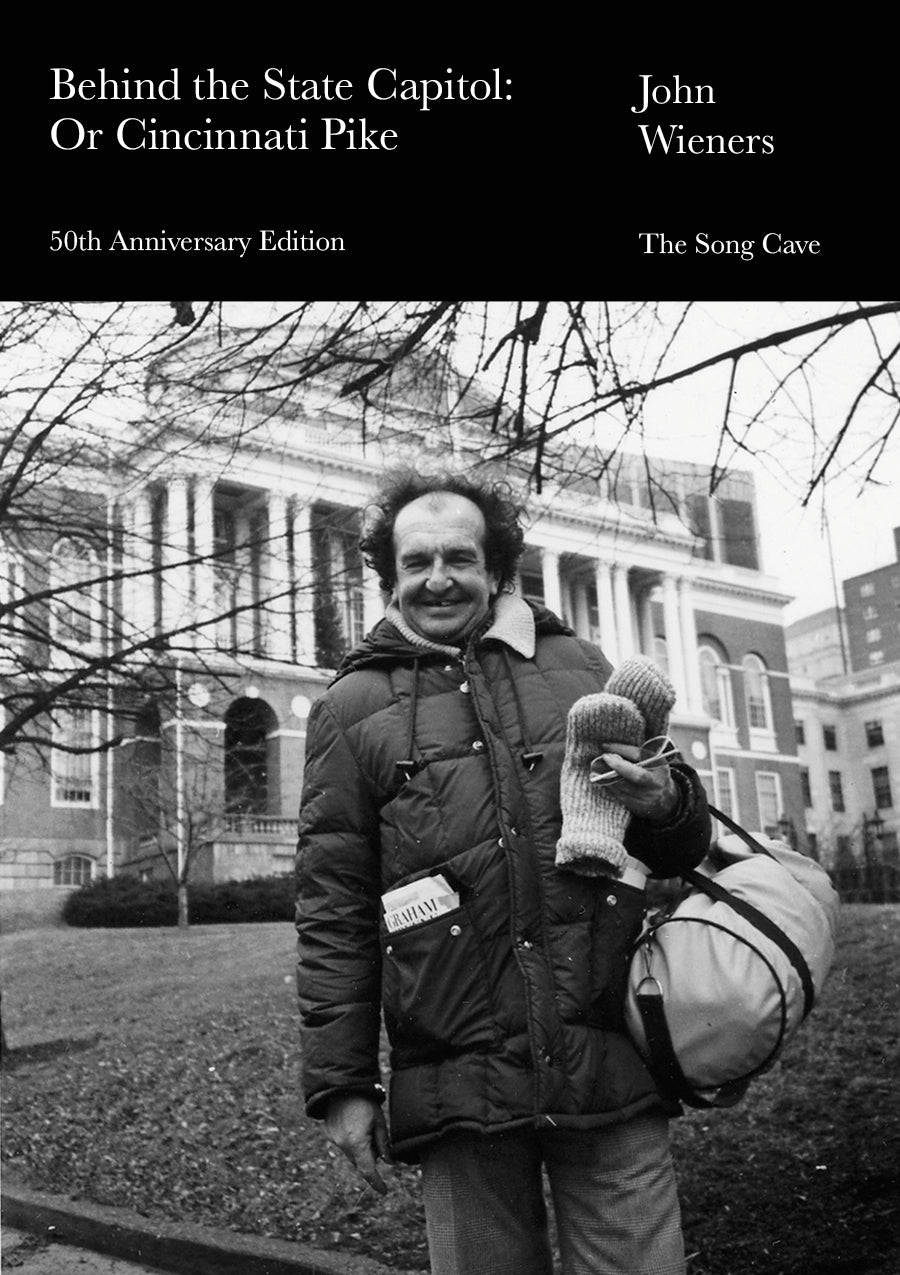Behind the State Capitol: Or Cincinnati Pike by John Wieners
Behind the State Capitol: Or Cincinnati Pike by John Wieners
Couldn't load pickup availability
Available in print for the first time in 50 years, Behind the State Capitol: Or Cincinnati Pike has long enjoyed cult status. It is the record of a poet whose life has been shattered by poverty, drug addiction, and mental illness. Wieners creates a complex schizo-analysis of language, capitalism, incarceration, and state power, while reflecting on unpopular themes of aging and loneliness in the gay world. It is also a paean for his beloved city of Boston, as he witnessed its destruction by the onerous forces of urban renewal. Considered by many to be his masterpiece, the book was met variously with indifference and outrage when it was published in 1975. In 1982, most remaining copies of the book were destroyed in the arson fire of Fag Rag/Good Gay Poets offices.
Already known as a "poet’s poet" from The Hotel Wentley Poems (1958), Ace of Pentacles (1964), and Nerves (1970), in 1972 Wieners moved to 44 Joy Street on Boston’s Beacon Hill, where he was involved with anti-war and gay liberation movements, the Beacon Hill Free School, and organizations devoted to the rights of people with mental health conditions. Out of this milieu emerged Behind the State Capitol, described by its author as “cinema decoupages; verses, abbreviated prose insights.” The book would be John Wieners’s last major poetical statement. He was forty-one.
This facsimile edition contains new afterwords by Wieners’s friend and scholar James Dunn, and the poet’s biographer, Robert Dewhurst.
John Wieners (1934–2002) was a founding member of the “New American” poetry that flourished in America after the Second World War. After graduating from Boston College in 1954, Wieners enrolled in the final class of Black Mountain College. Following Black Mountain’s closure in 1956, he founded the small magazine Measure (1957–1962) and embarked on a peripatetic life, participating in poetry communities in Boston, San Francisco, New York, and Buffalo throughout the late 1950s and 1960s, before settling at 44 Joy Street on Beacon Hill in 1972, where he was active in the anti-war movement, the Fag Rag publishing collective, the Beacon Hill Free School, and organizations supporting the rights of people with mental health conditions. He is the author of seven collections of poetry, three one-act plays, and numerous broadsides, pamphlets, uncollected poems, and journals.

